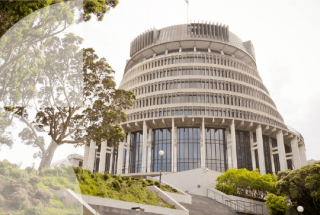RMA reform to start by fixing the government's blunders

RMA reform to start by fixing the government's blunders
Wednesday 28 November, 2018
A two stage process to improve the resource management system was announced today [9 November 2018] by Environment Minister David Parker.
The changes are separate from the legislation to set up an Urban Development Authority to fast-track housing and urban development projects.
“The Resource Management Act is underperforming in some critical areas and needs fixing,” David Parker said.
Stage One will reverse some objectionable changes made by the previous government in 2017 that were widely criticised.
For example, the Bill would repeal measures that prevent public notification and appeals by applicants and submitters in residential and subdivision consent applications. Proposed residential developments near existing facilities (such as ports, airports, quarries and electricity networks) can have significant impacts on existing operators and their future development options.
“Airports have recently highlighted the need to protect air noise corridors. They need to be able to participate. So do others,” David Parker said.
“New Zealand’s largest sub-dividers have argued rights of participation should be returned, in part because they lost their appeal right against unreasonable conditions imposed by councils unconstrained by appeals.
“The changes under the previous government caused perverse outcomes that gave applicants an incentive to intentionally make their applications non-compliant to preserve public participation and appeal rights. The change was both unprincipled and impractical and we are fixing it.”
Another change, recommended by Regional Councils, is the ability to upgrade groups of consents in line with updated standards. This will help speed the cleaning up of our rivers, which otherwise can be delayed for decades.
A Bill addressing changes that can be made straight away will be introduced to Parliament early next year.
It will address particular issues with resource consenting, and monitoring and enforcement processes in the RMA.
It will also repeal the broad regulation-making power passed last year, which enabled the Minister for the Environment to override councils. It will retain national direction powers via National Environmental Standards and National Policy Statements.
It will consider a more narrow regulation-making power that may be useful to support urban development.
“Through the Select Committee process councils, local organisations and the public will have an opportunity to provide feedback,” David Parker said.
Stage Two will be a more comprehensive review of the resource management system. It will build on current Government work priorities across urban development, climate change, and freshwater, and wider projects being led by various external groups. Stage Two is currently being scoped and is expected to start in 2019.
We will keep you updated on progress through future editions of the Legal Brief.





